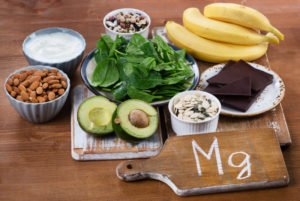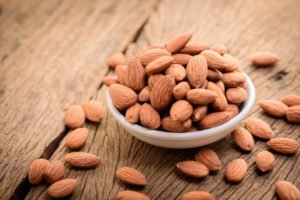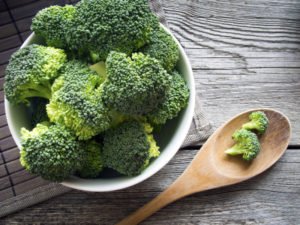If you suffer from migraines, you know they are far worse than just a “bad headache.” For more than 37 million people in the United States, migraines are a painful and debilitating part of life. They can have a profound negative effect on work life, home life, relationships and overall quality of life.
Migraine attacks range from moderate to severe intensity, lasting from a few hours up to three days.Symptoms include nausea, dizziness, visual disturbances, numbness and extreme sensitivity to light, sound smell and touch. While researchers are still trying to figure out what exactly causes migraines, some studies suggest there is a link between migraines and vitamin deficiencies.

A team at the Cincinnati Children’s Hospital, led by Dr. Suzanne Hagler, evaluated over 7,400 patients. Researchers documented baseline levels of riboflavin, Vitamin D, folate and coenzyme Q10. They found that young women and girls were more likely to experience a CoQ10 deficiency, while boys were more likely to suffer from a Vitamin D deficiency. They also found that 16-51% of the participants had below average levels of vitamins, depending on the vitamins tested.
Additional research has shown that a lack of magnesium in the body can result in many illnesses, including depression and reduced serotonin receptor function. Researchers believe that magnesium deficiency may play a role in migraines. Migraine sufferers may develop a deficiency from poor absorption or increased excretion due to stress or low nutritional intake.

Ensuring that your body gets the nutrients it needs to stay healthy just might be the key to preventing painful migraines and improving your quality of life.
10 Foods To Stop Painful Migraines
1. Cauliflower
Cauliflower is rich in CoQ10. Research has shown that women are more likely to experience low levels of CoQ10. Women are also more likely to suffer from migraines.
2. Bananas
Bananas are a healthy source of magnesium. Experts estimate that up to 80% of Amreicans are not getting enough magnesium in their diet. Studies suggest that low magnesium levels may be a trigger for migraines.

3. Spinach
Spinach is rich in a B vitamin known as riboflavin. Studies have shown that high levels of riboflavin can help treat painful migraines.
4. Almonds
Almonds are also a healthy source of both riboflavin and magnesium. You’re getting two important nutrients packed into a small, nutritious snack.

5. Sesame Seeds
Sesame seeds contain CoQ10. They’re also rich in Vitamin E, which can help stabilize estrogen levels. If you suffer from migraines around your time of the month, sesame seeds might help.
6. Dark, Leafy Greens
What aren’t dark, leafy greens good for? They are packed full of nutrients, including riboflavin and magnesium, which can prove beneficial for migraine sufferers.

7. Nuts And Seeds
Nuts and seeds are excellent sources of magnesium. In addition to almonds and sesame seeds, try cashews, Brazil nuts, sunflower seeds, peanuts and walnuts.
8. Broccoli
Broccoli is another healthy source of magnesium. Adding more green vegetables to your diet may help reduce the frequency and severity of migraines.

9. Asparagus
Asparagus contains riboflavin, an important nutrient when it comes to preventing and reducing migraine attacks.
10. Crimini Mushrooms
Crimini mushrooms contain riboflavin. They’re also a natural anti-inflammatory, which can come in handy during a migraine attack.